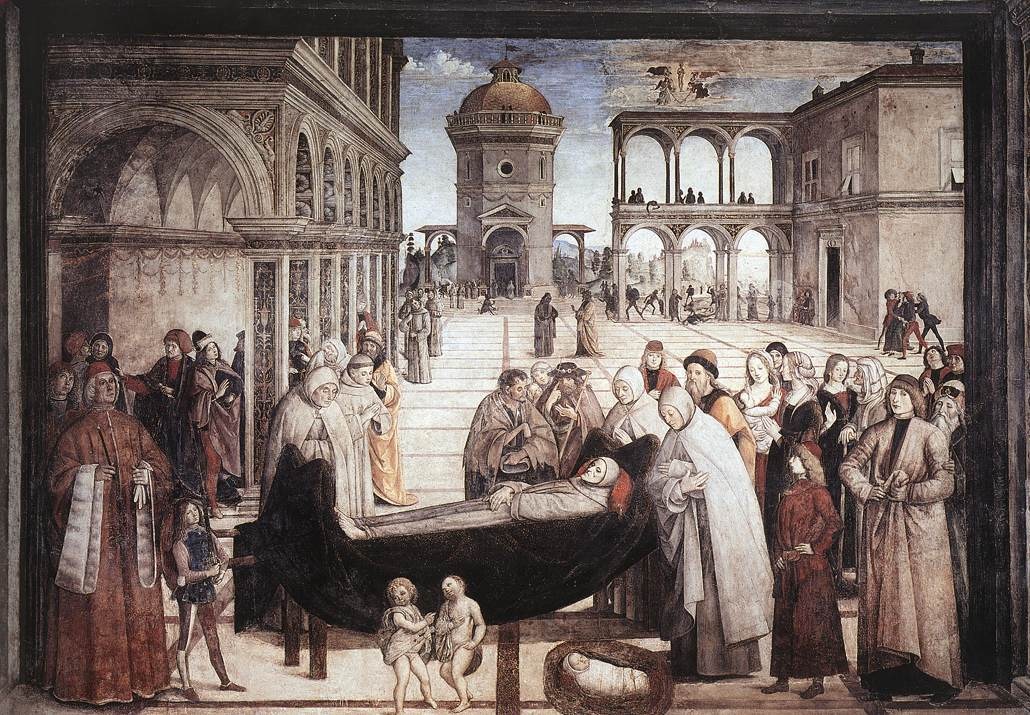
After suffering a serious illness lasting four months, which he bore with the greatest patience, when he had safely recovered he began to think of embracing some institute of the religious life. To prepare his way for this, he hired a little hut on the outskirts of the city; and in it he hid himself, leading a more austere life in every way, and assiduously beseeching God to shew him the path he was to follow. A divine inspiration led him to prefer to all others the order of blessed Francis, in which he excelled in humility, patience, and the other virtues of a religious man. The rector of the convent noticing this, and having previously perceived that Bernardine had experience in teaching and in sacred letters, imposed the duty of preaching upon him. The saint most humbly accepted the office, though he was aware that the weakness and hoarseness of his voice unfitted him for it: but he sought God's help, and was miraculously freed from these impediments.
And although those times abounded with vices and crimes, and with bloody civil wars in Italy, so that all things, divine and human, were thrown into utter confusion, Bernardine went through the cities and towns, and in the Name of Jesus, which was ever on his lips and in his heart, restored the fallen piety and morals to a great extent by his word and example. After this had been done, several important cities asked the Supreme Pontiff to make Bernardine their bishop; but this office he most strenuously rejected with invincible humility. At length the man of God, worn out with heavy labours, after working many and great miracles, and also having written pious and learned books, died a happy death, at the age of sixty-six, in a city of the Abruzzi, called L'Aquila. New miracles daily made him illustrious, and, in the sixth year after his death, the Supreme Pontiff Nicholas V placed him in the list of the Saints.





